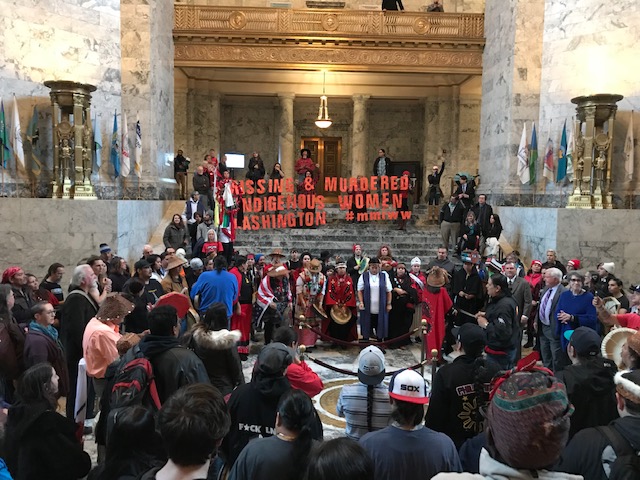
By Victoria Leistman, Dirty Fuels Organizer
On March 23, Governor Inslee declared a Shelter in Place order for the state of Washington. Today marks 43 days since we took these measures to slow down the rate of transmission for COVID19 and “flatten the curve”. For many of us, this means dutifully staying indoors, limiting our interactions with others, and wearing masks when we do venture outside. However despite our best efforts, Sierra Club was disappointed to learn that fossil fuel construction projects have been deemed “essential” and are being exempt from the critical rules of social distancing. Time and time again, extractive industries are allowed to profit off of the destruction of the environment and our communities.
It is dangerous and irresponsible to allow these polluting fossil fuel projects to continue construction during a global pandemic. Many of these construction workers are being housed in “Man camps,” temporary living quarters that are set up by the oil and gas industry for workers carrying out dirty fuel extraction or construction. In addition to blatantly flouting the law, this setup only exacerbates the threats that these workers already bring to communities. These camps are often sited on or in the immediate vicinity of Tribal and First Nation lands and are made up of predominantly cisgendered, white men who are not local to the community they are working in. Research has shown a direct link between man camps and increased violence against Indigenous women and non-binary people.
Now, with facilities in British Columbia like the Trans Mountain pipeline, the Coastal Gas Link pipeline, and the site C dam; and with the Keystone XL pipeline in the US, man camps are moving forward on projects without taking proper health precautions for COVID-19. People from the man camps are exposing communities to the virus because of oil and gas companies’ disregard for public health, demonstrating their continued treatment of Indigenous peoples as disposable.
The COVID-19 crisis threatens us all. But, just like with the climate crisis, low-income communities of color are disproportionately impacted. This pandemic is exposing the layers of systematic, unjust inequalities that our social and economic structures have created. Now, it is up to us to bring this into the spotlight of the COVID-19 situation and demand all man camps close, now and in the future.
It is always an important time to talk about the connection between Missing and Murdered Indigenous Women (MMIW) and extractive industry. Take action today here, here and here.
You can read more and share about what’s happening now in the age of COVID and on background about the issue of MMIW below.
Resource List:
What's happening now
- “KXL Pipeline -- The New Smallpox Blanket” Native American Rights Fund
- https://nokxlpromise.org/covid-19/
- “Indigenous fear Canada work camps will be coronavirus incubators” Aljazeera
- “First Nations call for Site C resource project to be shut down in coronavirus pandemic” Vice
- “Infrastructure Projects are endangering Indigneous women and children” World Politics Review
More background on MMIW
- https://www.secwepemculecw.org/no-mans-camps
- “Expected increase in violence from Trans Mountain pipeline worker camps worrying Indigenous women” Indian Country Today
- “A well of grief: the relatives of murdered native women speak out” The Guardian
- “Why Aren’t Fossil Fuel Companies Held Accountable for Missing and Murdered Indigenous Women?” Yes Magazine